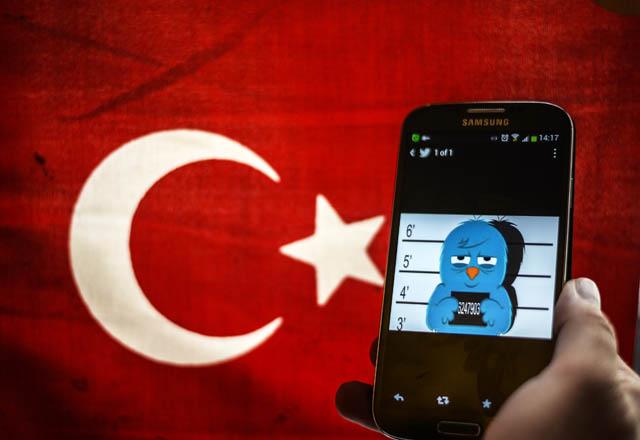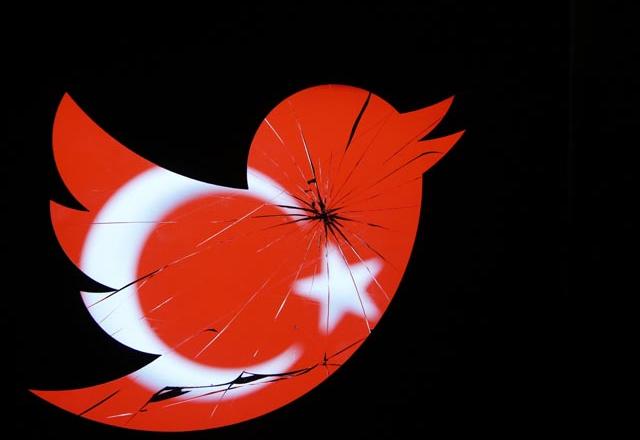You are here
Turkey warns YouTube and Facebook could be banned
By AFP - Mar 08,2014 - Last updated at Mar 08,2014
ANKARA — Turkey’s embattled prime minister has warned that his government could ban popular social media networks YouTube and Facebook after a number of online leaks added momentum to a spiralling corruption scandal.
Recep Tayyip Erdogan’s proposals to tighten his government’s grip over the Internet have generated criticism at home and abroad about rights in the EU-hopeful country.
“There are new steps we will take in that sphere after March 30... including a ban [on YouTube, Facebook],” Erdogan told private ATV television in an interview late Thursday.
In stark contrast, President Abdullah Gul, a frequent social media user, said YouTube and Facebook cannot be unplugged.
“YouTube and Facebook are recognised platforms all over the world. A ban is out of the question,” he told reporters on Friday.
The president in Turkey is however a largely ceremonial figure.
Erdogan, Turkey’s all-powerful leader since 2003, has been under mounting pressure after audio recordings were leaked last month in which he and his son allegedly discuss how to hide vast sums of money.
The Turkish premier dismissed them as a “vile” and an “immoral” montage by rivals ahead of key local elections on March 30. His office claimed the recordings were “completely untrue”.
Media boss in tears
Erdogan’s government has been shaken by a high-level corruption scandal that erupted in mid-December and ensnared the premier’s key political and business allies.
Erdogan has waged a war against ally-turned-opponent Fethullah Gulen, a Muslim cleric based in the United States with strong influence over the country’s police and the judiciary, of orchestrating the graft probe.
He has accused so-called “Gulenists” of acting like a “parallel state” and vowed to cleanse the state of the movement’s supporters by purging police and passing laws to increase his grip over the Internet and the judiciary.
“Social media has turned into a domain for quite some time where the battle between the loyalists of the frustrated prime minister and the alleged ‘parallel state’ is in full swing,” Asli Tunc, professor at Istanbul’s Bilgi University, told AFP.
“The government is seeking to find channels to shut down the social media which leaks tapes or dissident views. People cling to social media tools like Twitter for their news because the mainstream media or TVs are cowering in fear,” she said.
A series of other leaks on YouTube showed Erdogan allegedly meddling in business deals, court cases and even media coverage.
In the latest audio tape posted on YouTube on Thursday, a voice purportedly of Erdogan is heard reprimanding businessman Erdogan Demiroren after his Milliyet newspaper published a 2013 article on the fragile peace talks with Kurdish rebels.
‘Did we upset you?’ asks Demiroren.
The voice allegedly of Erdogan calls both the reporter and the editor who published the story “dishonourable”, with the businessman promising that he would find the source and disclose it to the premier.
Demiroren is later heard bursting into tears under pressure to fire his two journalists, crying, “How did I end up in this business?”
Erdogan’s latest threat about Facebook and YouTube is a reflection of his political frustration in the run up to elections, according to Tunc, but she said the premier was also known for his intolerance toward the social media.
Erdogan is openly suspicious of the Internet, branding Twitter a “menace” last year for helping organise mass anti-government protests in which eight people died and thousands were injured.
“I don’t have that much time to waste in Twitter,” he said last month.
Access to thousands of websites have been blocked in recent years in Turkey.
YouTube was previously banned for two years until 2010 because of material deemed insulting to the country’s still-revered founder, Mustafa Kemal Ataturk.
Further Internet curbs allowed the authorities to keep a record of someone’s web activity for up to two years and block sites deemed insulting or as invading privacy.
Critics say however that the latest curbs are aimed at preventing further details from the corruption scandal being leaked online.
The European Union has voiced its “concerns” that the Internet law would limit freedom of expression, urging Ankara to ensure compliance with the bloc’s standards.
Related Articles
Turkey’s defiant Prime Minister Recep Tayyip Erdogan launched a fierce new attack on social media on Sunday, just hours after the president voiced hope the government would soon lift its controversial ban on Twitter.
Turkey lifted a much-criticised block on Twitter on Thursday, 24 hours after its highest court had overturned the ban as a breach of the right to free speech.
Turkey said on Saturday that Twitter was “biased” and had been used for “systematic character assassinations” of Prime Minister Recep Tayyip Erdogan’s government, a day after Ankara’s ban on the site prompted an international outcry.













